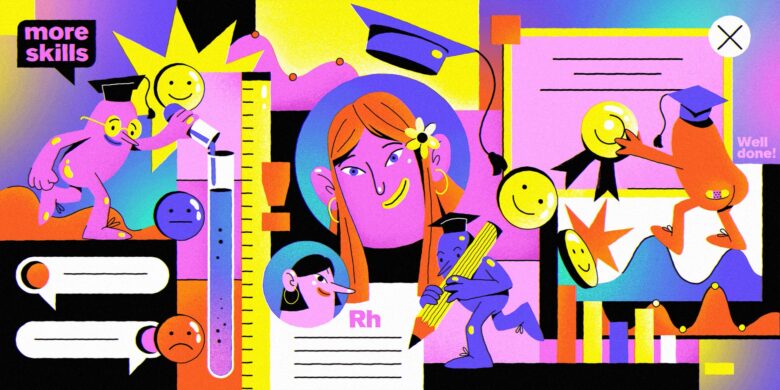Employee performance review phrases are essential tools that can significantly influence individual growth and overall organizational development. This article provides a comprehensive guide featuring actionable insights and carefully chosen phrases to enhance your review process. It highlights the importance of effective communication, underscoring how it can transform feedback sessions into meaningful conversations that foster improvement and motivation.
This guide offers targeted phrases for 19 essential skills, such as leadership and teamwork, to elevate your performance reviews. It’s designed to provide a balanced assessment, highlighting strengths and identifying growth areas. Using these phrases, you can create a positive and motivating review process that outlines a clear path for employee development. We aim to streamline performance evaluations into effective dialogues supporting individual and organizational growth.
Grasping the concepts presented in this article will equip you to conduct effective and uplifting performance reviews, turning them into a cornerstone for driving positive change within your team and organization.
Boost your team’s efficiency with Hubstaff's productivity tools
Understanding the basics of employee performance reviews
Performance reviews are systematic evaluations of an employee’s work performance over a specific period.
The purpose of performance reviews is multifaceted:
- To provide feedback
- Guide employee development
- Inform decisions on promotions and rewards
- Enhance organizational performance
Effective performance reviews can significantly impact employee growth and organizational development. They offer a structured opportunity for reflection, feedback, and goal setting, fostering professional development and career advancement. These reviews can illuminate workforce strengths and gaps for organizations, informing strategic decisions and driving growth.
How to prepare for a meaningful performance review
Set clear objectives for the performance review
Objectives should be SMART (Specific, Measurable, Achievable, Relevant, and Time-bound) and aligned with the individual’s career aspirations and the organization’s strategic goals.
Create a comfortable and constructive review environment
Select a private and quiet location to ensure the discussion remains focused and uninterrupted. Encourage a two-way conversation, allowing employee input to foster a collaborative atmosphere. Concentrate on establishing a positive and forward-looking tone throughout the review, making it a constructive and encouraging experience.
Get your performance review phrases right
The language used in performance reviews can profoundly affect an employee’s performance, morale, and motivation. Accurate and constructive phrases can inspire growth and development, while poorly chosen words can demotivate and disengage.
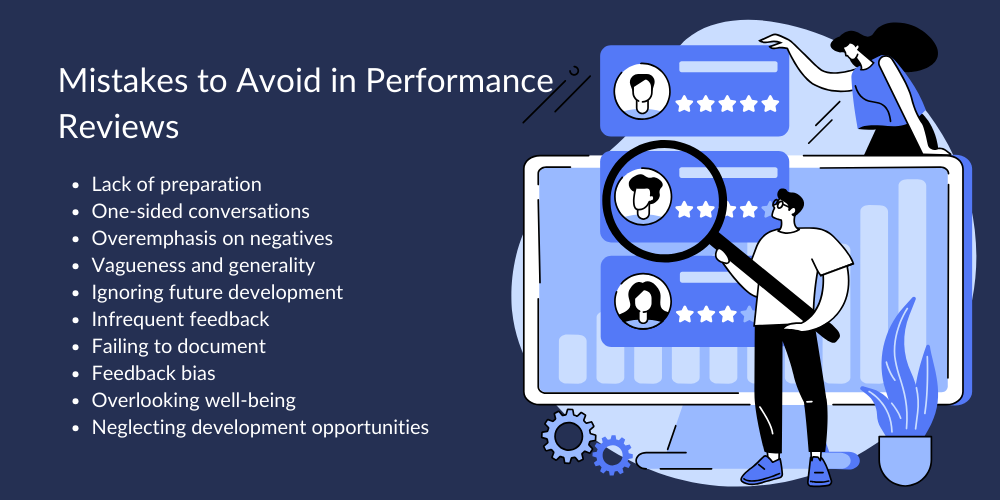
Avoid making these mistakes in a performance review
Nearly 60% of millennial employees feel their supervisors lack the necessary skills to provide constructive criticism during performance evaluations. Don’t let that be you.
- Lack of preparation: Always review data and set clear goals before the review.
- One-sided conversation: Foster dialogue by inviting employee feedback.
- Negative focus: Balance critiques with acknowledgment of successes.
- Vagueness: Use specific examples to clarify expectations and feedback.
- Ignoring future development: Set clear, actionable goals for growth.
- Infrequent feedback: Provide regular updates and support, not just annual reviews.
- Failure to document: Keep records of discussions and next steps.
- Bias in feedback: Stay objective and focus on measurable outcomes.
- Overlooking well-being: Consider the employee’s overall well-being in your assessment.
- Neglecting development opportunities: Tie feedback to career development paths.
Performance review phrases by skill
This section serves as the core of our guide, zooming in on performance review examples with crafted review phrases organized by skill. It is designed to equip managers and HR professionals with effective communication tools for providing constructive and balanced performance management feedback.
These phrases are tailored to celebrate successes and identify areas for development, ensuring feedback is both meaningful and actionable. Whether you’re recognizing an employee’s outstanding achievements or guiding them through areas of improvement, this guide facilitates clear, supportive conversations that can lead to personal growth and enhanced performance.
Quick navigation – Jump to a skill:
- 1. Coaching, training, and development review phrases
- 2. Communication, active listening, and interpersonal skills
- 3. Teamwork and collaboration
- 4. Accountability and attendance
- 5. Attitude, dependability, and reliability
- 6. Leadership and management
- 7. Time management
- 8. Performance, productivity, and quality of work
- 9. Customer service
- 10. Creativity, flexibility, and innovation
- 11. Decision-making and problem-solving
- 12. Drive and motivation
- 13. Goal-setting and future planning
- 14. Strategic thinking and vision
- 15. Ethical conduct and integrity
- 16. Cultural competency and diversity awareness
- 17. Self-improvement and learning agility
- 18. Technical skills and proficiency
- 19. Professionalism
1. Coaching, training, and development review phrases
Tailoring coaching methods to individual needs, providing clear and actionable feedback, and fostering an environment conducive to learning and professional growth.
Required to enhance team capabilities and facilitate individual skill development across the board.
Particularly critical in education, human resources, and leadership roles, where direct mentorship and developmental initiatives are crucial.
Performance review phrases
Achieves or outperforms expectations:
- Actively seeks out educational opportunities to deepen understanding and meet performance objectives.
- Initiates engagement in new tasks and responsibilities to acquire and hone skills.
- Utilizes insights from training and coaching to elevate role performance effectively.
- Crafts comprehensive guides detailing job-specific procedures to aid trainees in retaining information.
- Demonstrates superior listening abilities, effectively clarifying and distilling information for team members.
- Employs questioning techniques to guide team members towards self-discovery, avoiding personal biases.
- Provides a supportive and positive team environment for trial and error.
- Offers constructive criticism tailored to assist individuals in strengthening areas of weakness.
- Shows an exceptional ability to connect with and understand individuals from diverse backgrounds.
- Encourages other team members to develop their own solutions, stepping back from imparting expert knowledge.
Needs improvement:
- Exhibits reluctance to participate in ongoing development programs, affecting skill progression.
- Shows hesitance in pursuing additional training opportunities for enhanced job performance and career development.
- Demonstrates little interest in incorporating skills or knowledge from training into daily activities.
- Rarely takes the initiative to mentor peers, provide constructive criticism, or share knowledge, overlooking chances for team advancement.
- Responds with frustration rather than calm guidance when errors are made.
- Often intervenes with solutions, depriving individuals of the chance to think independently.
- Frequently disrupts the coaching flow, potentially hindering important communications.
- Utilizes closed questioning, limiting the ability of individuals to generate their own ideas.
- Becomes overly invested in other team members goals, leading to disappointment in cases of unmet objectives.
- Fails to establish or monitor progress metrics, showing indifference to the individual’s development trajectory.
2. Communication, active listening, and interpersonal skills
Practicing active listening and interpersonal skills, conveying information clearly and concisely, understanding non-verbal communication cues, and engaging in constructive dialogue.
Required for facilitating effective exchange of information, building relationships, and ensuring mutual understanding in all professional settings.
Particularly critical in customer service, sales, and health care, where clear communication, interpersonal skills, and empathetic listening significantly impact outcomes.
Performance review phrases
Achieves or outperforms expectations:
- Excels in both verbal and written communication skills.
- Practices active listening skills, ensuring full engagement in conversations.
- Builds rapport easily, fostering positive and strong working relationships.
- Navigates difficult conversations with professionalism and tact.
- Welcomes feedback, demonstrating openness to growth.
- Creates a supportive and inclusive team environment.
- Offers constructive feedback to support team development.
- Engages in collaborative problem-solving.
- Effectively communicates across all organizational levels.
- Encourages the sharing of diverse viewpoints, fostering innovation.
Needs improvement:
- Lacks clarity and conciseness in communication.
- Needs to develop more effective listening and communication skills.
- Prone to interrupting, disrupting the conversational flow.
- Requires better conflict resolution and diplomacy skills.
- Should be more welcoming of feedback for self-improvement.
- Inconsistent in maintaining effective team communication.
- Must improve documentation and capture of key discussions.
- Struggles with clear articulation of thoughts and ideas.
- Faces challenges in effective cross-level communication.
- Needs to lead discussions more effectively toward consensus in team meetings.
Poor communication in the workplace can increase employee turnover by 50%, highlighting the importance of clear communication for organizational success.
3. Teamwork and collaboration
Sharing responsibilities equitably, respecting and valuing diverse perspectives, offering and seeking support, and maintaining a commitment to the team’s objectives.
Required to contribute effectively within team meetings and settings to achieve common goals across various projects and disciplines.
Particularly critical in project-based sectors like engineering, IT, and collaborative management roles, where teamwork drives success.
Performance review phrases
Achieves or outperforms expectations:
- Consistently supports and contributes to team goals.
- Demonstrates eagerness to help team members, enhancing group dynamics.
- Collaborates effectively, driving shared objectives to completion.
- Fosters a positive team atmosphere, uplifting colleagues.
- Offers assistance proactively, beyond own responsibilities.
- Embraces constructive feedback for personal and team growth.
- Shares knowledge and resources generously, facilitating team success.
- Respects and incorporates diverse perspectives in team discussions.
- Prioritizes team objectives, setting aside personal preferences when necessary.
- Engages in and facilitates meaningful, respectful discussions to resolve conflicts.
Needs improvement:
- Prefers working independently, missing opportunities for team collaboration.
- Hesitant to offer help or guidance, affecting team support mechanisms.
- Withholds information, impeding the flow of resources and insights.
- Disregards colleagues’ perspectives, limiting collaborative innovation.
- Inappropriately claims sole credit for team achievements, damaging morale.
- Fails to communicate effectively, causing misalignments and delays.
- Resists compromising, negatively impacting team cohesion and progress.
- Overlooks the importance of welcoming and mentoring new team members.
- Demonstrates inflexibility, limiting adaptability to team needs and changes.
- Prioritizes personal success over collective goals, undermining team spirit.
4. Accountability and attendance
Consistently meeting deadlines, demonstrating reliability in task completion, maintaining punctuality, and showing a proactive approach to responsibilities.
Required for ensuring reliability and maintaining a strong sense of responsibility towards one’s duties and the team’s success.
Particularly critical in sectors where reliability and timely presence directly impact operations and safety, such as health care, law enforcement, and manufacturing.
Performance review phrases
Achieves or outperforms expectations:
- Demonstrates exemplary attendance and punctuality, setting a high standard.
- Meets all scheduled commitments without fail, showing exceptional reliability.
- Exhibits minimal unplanned absences, reflecting strong dedication.
- Proactively communicates and manages planned absences, ensuring smooth team operations.
- Shows preparedness and engagement throughout all scheduled hours, contributing positively to the team.
- Coordinates effectively with colleagues to manage workloads during any absences.
- Maintains a commendable level of accountability, actively offering assistance and taking responsibility.
- Utilizes time efficiently, maximizing productivity and team contribution.
- Openly receives and applies feedback, viewing challenges as opportunities for growth.
- Practices integrity and builds trust through consistent performance and ethical actions.
- Leads initiatives for process improvement, demonstrating a proactive approach to enhancing team efficiency.
Needs improvement:
- Experiences difficulty in adhering to scheduled times, impacting team dynamics.
- Occasionally demonstrates a lack of forethought in planning for time off, necessitating better communication.
- Tardiness affects the team’s ability to meet its goals, indicating a need for improved time management.
- Absences are often not communicated in advance, leading to challenges in project continuity.
- Shows reluctance to fully embrace accountability, particularly in acknowledging areas for improvement.
- Feedback is not always received constructively, highlighting a need for a more open-minded approach.
- Misses deadlines, suggesting an area for growth in prioritizing and managing work commitments.
- Occasionally shifts responsibility to others, showing an opportunity to strengthen ownership of assigned tasks.
- Defensiveness in response to constructive criticism indicates a potential area for personal development.
- A pattern of inconsistent engagement suggests a need for enhanced focus on commitment and team support.
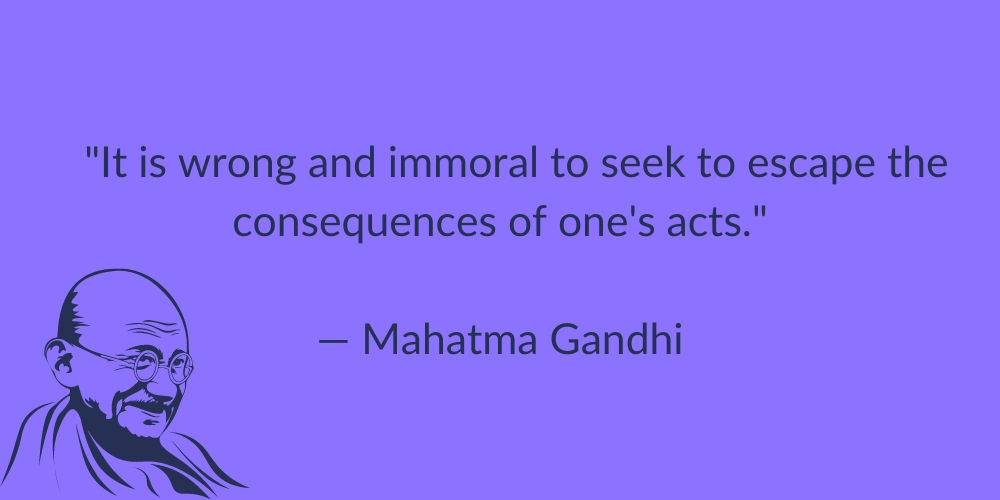
5. Attitude, dependability, and reliability
Maintaining a positive and constructive attitude, demonstrating dependability in all assigned tasks, being a reliable team member, and adapting positively to change.
Required to foster a positive work environment and ensure consistent performance across all levels of an organization.
Particularly critical in service industries, an employee’s demeanor can significantly affect customer satisfaction and loyalty.
Performance review phrases
After a thorough final review to eliminate any potential repetitions and ensure each point is distinct, here is the refined list for “Attitude, Dependability, and Reliability”:
Achieves or outperforms expectations:
- Demonstrates exceptional punctuality and dedication, consistently meeting deadlines.
- Serves as a reliable cornerstone for crucial tasks, ensuring their flawless execution.
- Exceeds performance benchmarks with a steadfast commitment to excellence.
- Proven indispensable through consistent, high-quality contributions.
- Exhibits a proactive stance, taking full accountability for responsibilities.
- Maintains superior communication, effectively updating the team on progress.
- Thrives under pressure, showcasing resilience in challenging situations.
- Cultivates a positive work environment, uplifting peers with a motivating presence.
- Recognizes and appreciates team members’ efforts, fostering a culture of acknowledgment.
- Adapts seamlessly to change, embodying flexibility and a positive attitude toward new challenges.
Needs improvement:
- Struggles with consistent task reliability, undermining team trust.
- Shows variability in performance, lacking the consistency of peers.
- Often misses deadlines, requiring additional support to meet objectives.
- Work quality fluctuates, failing to meet established standards regularly.
- Exhibits disengagement, negatively affecting team dynamics and collaboration.
- Defensively responds to feedback, hindering personal and collective growth.
- Demonstrates a pessimistic view, often focusing on problems rather than solutions.
- Reluctant to fully engage with team efforts, impacting group success.
- Tardiness affects the team’s schedule and project kick-off efficiency.
- Needs to communicate and plan for absences to reduce team disruptions proactively.
6. Leadership and management
Inspiring and motivating team members, demonstrating decision-making prowess, effectively resolving conflicts, and delegating tasks appropriately.
Required to guide teams toward achieving goals, making strategic decisions, and managing resources effectively.
Particularly critical in roles with direct oversight or strategic influence, including Executives, Managers, and Team Leaders.
Performance review phrases
Achieves or outperforms expectations:
- Strategically matches resource allocation with task urgency and team capacity.
- Cultivates a culture of reliability and mutual respect.
- Shares expertise actively, promoting collective learning and growth.
- Guides newcomers effectively, ensuring a seamless integration into the team.
- Fosters open communication, enhancing team dialogue and understanding.
- Recognizes and rewards exceptional performance consistently.
- Delegates tasks based on individual strengths, optimizing team effectiveness.
- Employs diverse strategies to motivate the team effectively.
- Provides continuous mentorship, contributing to the development of team skillsets.
- Encourages collaboration, significantly boosting team dynamics and performance.
Needs improvement:
- Provides inconsistent instructions, confusing team members and hindering clarity.
- Withholds recognition, significantly damaging team morale.
- Offers vague task explanations, impeding team progress.
- Demonstrates impatience with newcomers, lacking supportive mentorship.
- Delivers mixed messages about objectives, leading to uncertainty.
- Sets challenging goals without offering necessary support, demoralizing the team.
- Communicates guidance vaguely, causing misinterpretations and delays.
- Neglects to acknowledge team achievements publicly, reducing motivation.
- Shows preferential treatment, disrupting team unity and trust.
- Misses opportunities for staff development, limiting team growth and potential.
7. Time management
Prioritizing tasks based on urgency and importance, planning and organizing work schedules efficiently, avoiding procrastination, and setting realistic deadlines.
Required to prioritize tasks, manage time effectively, and meet deadlines is crucial in maximizing productivity in any role.
Particularly critical in roles with high autonomy and flexibility, such as consultants, freelancers, and remote teams, where effective time management directly influences performance.
Performance review phrases
Achieves or outperforms expectations:
- Diligently completes assignments on time, showcasing strong time management skills.
- Balances multiple tasks effectively, maintaining punctuality across projects.
- Utilizes time efficiently, focusing on prioritization of critical activities.
- Plans meticulously, including contingency measures for flexible adjustments.
- Manages simultaneous tasks without compromising quality.
- Distributes workloads thoughtfully to ensure team balance and project success.
- Maintains focus and minimizes distractions, enhancing productivity.
- Adheres to schedules strictly, ensuring reliable deadline completion.
- Communicates proactively about progress and potential timing challenges.
- Leads by example in meeting management, optimizing time for productivity.
Needs improvement:
- Often misses deadlines due to time management challenges.
- Struggles with organization, impacting time efficiency and productivity.
- Task prioritization needs refinement for improved workflow and efficiency.
- Overcommitment leads to overwhelm and a decrease in productivity.
- Faces difficulties in adapting to high-demand periods, affecting workload management.
- Exhibits a consistent pattern of missing deadlines, highlighting inefficiencies.
- Underestimates task duration, frequently causing delays.
- Struggles with maintaining focus, negatively affecting task quality.
- Requires further development in planning and scheduling skills for better time management.
- Demonstrates reluctance to take responsibility for delays, affecting team reliability.
Top tip for enhancing time management: Incorporate time tracking tools to elevate and measure employee efficiency. Acknowledge their use in performance reviews to motivate your team towards improved productivity and time management.
8. Performance, productivity, and quality of work
Focusing on detail-oriented work, seeking ways to improve processes and measure efficiency, maintaining a high standard of work quality, and consistently meeting or exceeding performance expectations.
Required for personal success and organizational growth.
Particularly critical in roles with tangible outputs, such as in Manufacturing, Software Development, and Quality Assurance, where productivity and quality have direct measurable impacts.
Performance review phrases
Achieves or outperforms expectations:
- Executes tasks with precision, delivering high-quality outcomes consistently.
- Demonstrates remarkable accuracy and attention to detail across various assignments.
- Balances substantial work volume while maintaining high-quality work.
- Shows adaptability by proactively taking on new roles and responsibilities.
- Exhibits deep knowledge and flawless execution of job duties.
- Leads initiatives that significantly improve performance and productivity.
- Completes assignments ahead of schedule, demonstrating exceptional efficiency.
- Innovates effective solutions for challenging scenarios, enhancing operational processes.
- Exceeds expectations, producing work that surpasses initial objectives with measurable success.
- Actively engages in self-improvement, using feedback to drive personal and professional growth.
Needs improvement:
- Consistently fails to meet monthly performance targets, indicating inefficiency.
- Exhibits more frequent errors than peers, highlighting a need for improved accuracy.
- Demonstrates a significant gap in understanding essential work processes.
- Shows reluctance to tackle new tasks, hindering professional growth.
- Struggles with focusing, adversely affecting the quality of work.
- Lacks essential job knowledge, negatively impacting performance outcomes.
- Submits work without thorough verification, leading to quality issues.
- Requires frequent assistance for essential job functions, suggesting a lack of independence.
- Overlooks critical details, compromising the completion of assignments.
- Faces challenges with task prioritization, affecting efficiency and deadlines.
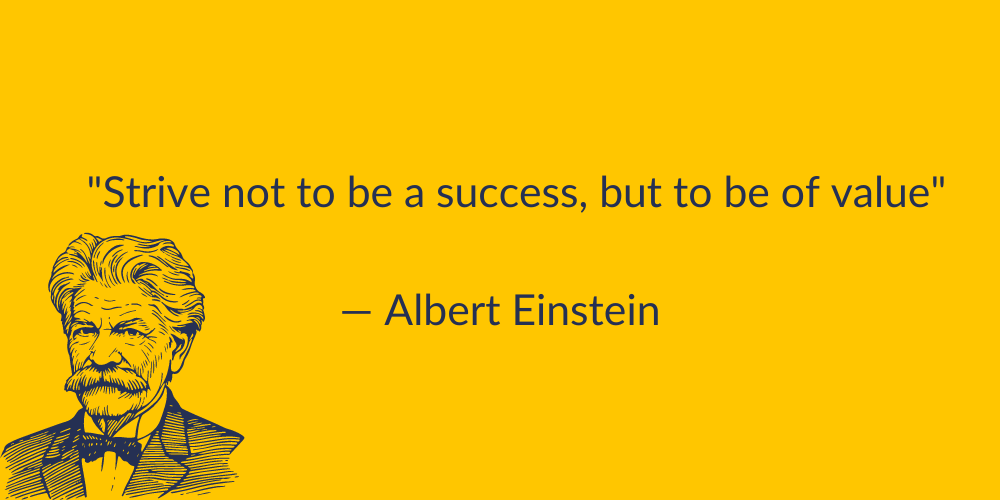
9. Customer service
Listening actively to customer needs, demonstrating empathy and understanding, resolving issues promptly and effectively, and maintaining a customer-focused attitude.
Required to ensure customer satisfaction through positive interactions and effective service delivery.
Particularly critical in retail, hospitality, and call center operations, where customer service excellence directly influences brand perception and loyalty.
Performance review phrases
Achieves or outperforms expectations:
- Regularly ensures customer satisfaction is the top priority, garnering positive reviews and loyalty.
- Demonstrates exceptional problem-resolution skills, swiftly addressing and rectifying customer issues.
- Displays deep empathy and patience when interacting with customers, enhancing their overall experience.
- Consistently maintains a positive demeanor, significantly enhancing the customer service environment.
- Attentively listens to and addresses customer needs, providing customized and meticulous service.
- Responds to customer queries with promptness and professionalism, ensuring clarity and satisfaction.
- Showcases comprehensive knowledge of products or services, guiding customers with accurate information.
Needs improvement:
- Shows limited ability to empathize with customers, often leading to unresolved grievances.
- Sometimes fails to promptly follow up on customer issues, resulting in inadequately resolved inquiries.
- Faces challenges in clear communication, sometimes causing customer dissatisfaction.
- Exhibits variability in offering correct and helpful customer advice or support.
- Could enhance skills in managing challenging customer interactions with more calmness and professionalism.
- Needs to be more actively soliciting customer feedback for service enhancement.
10. Creativity, flexibility, and innovation
Encouraging innovative thinking, being open to new ideas and approaches, adapting strategies to overcome challenges, and fostering an environment that values creativity.
Required to be able to adapt to change and think creatively to provide innovative solutions to navigate challenges and seize opportunities.
Particularly critical in creative industries, marketing, advertising, design, and research & development, where innovation and adaptability drive success.
Performance review phrases
Achieves or outperforms expectations:
- Excels at devising creative solutions to complex problems, showcasing superior problem-solving skills.
- Innovates beyond conventional methods, demonstrating originality in thought.
- Proactively suggests improvements to organizational processes for ongoing enhancement.
- Leads impactful creative projects, significantly improving business outcomes.
- Encourages a culture of innovation, fostering collaboration and inventive thinking.
- Emerges as a key resource for inventive solutions in challenging scenarios.
- Develops new concepts that lead to significant enhancements in products or services.
- Blends creativity with practicality to tackle challenges in unique ways.
- Fosters an environment that rewards innovation and encourages risk-taking.
- Drives the organization forward by championing a proactive, innovative approach to problem-solving and development.
Needs improvement:
- Rarely motivates the team to seek creative solutions.
- Shows little initiative in proposing innovative ideas.
- Often opts for traditional approaches over original solutions.
- Rushes idea implementation without proper evaluation, causing setbacks.
- Discourages exploration of inventive solutions within the team.
- Demonstrates limited openness to the team’s innovative ideas.
- Exhibits a lack of interest in creative problem-solving methods.
- Prefers established methods to experimenting with new solutions.
- Reluctant to consider or support the team’s creative proposals.
- Does not cultivate an environment supportive of creativity and innovation.
According to McKinsey, 87% of executives consider innovation crucial for their organization’s success and expansion.
11. Decision-making and problem-solving
Employing analytical skills to evaluate options, making decisions based on sound judgment and ethical considerations, solving problems creatively and efficiently, and learning from outcomes to improve future decision-making processes.
Required to analyze situations, make informed decisions, and solve problems with innovative solutions.
Particularly critical in strategic roles such as business analysis, health care, IT, and any position requiring regular critical thinking and problem-solving.
Performance review phrases
Achieves or outperforms expectations:
- Skillfully analyzes situations to craft innovative solutions.
- Demonstrates decisiveness and sound judgment in challenging scenarios.
- Employs creativity and critical thinking to solve problems innovatively.
- Adeptly prioritizes tasks and makes informed decisions when faced with difficulties.
- Thoroughly identifies root causes and implements targeted solutions.
- Considers all relevant factors meticulously before deciding on the best course of action.
- Maintains composure under pressure, making level-headed decisions.
- Utilizes past experiences and diverse perspectives to enhance decision-making.
- Breaks down complex issues into manageable parts for more straightforward resolution.
- Adapts strategies flexibly based on new insights, optimizing outcomes.
Needs improvement:
- Applies overly complex methods, complicating problem-solving.
- Struggles to resolve difficult problems efficiently.
- Hesitates to make decisions, delaying response times.
- Overlooks thorough information gathering, affecting the quality of decisions.
- Allows bias to overshadow objective judgment.
- Shows resistance to revising decisions despite new information.
- Prefers familiar methods, limiting innovative solution exploration.
- Demonstrates rigidity, reducing the adaptability in problem-solving approaches.
- Misses the broader implications of decisions, focusing too narrowly.
- Lacks proactivity in seeking inventive solutions to new challenges.
12. Drive and motivation
Setting and pursuing challenging goals, maintaining a high level of self-motivation, demonstrating resilience in the face of setbacks, and continuously seeking opportunities for growth and improvement.
Required to achieve goals and pursue personal and professional growth and career success.
Particularly critical in sales and entrepreneurial endeavors, where individual drive and motivation directly impact success and income.
Performance review phrases
Achieves or outperforms expectations:
- Demonstrates exceptional self-motivation, taking initiative beyond expected standards.
- Pursues challenging goals with zeal, enhancing team and organizational success.
- Overcomes obstacles with persistence and determination, continuously advancing toward goals.
- Inspires colleagues through genuine passion and commitment to their work.
- Elevates team performance by motivating and energizing members toward excellence.
- Moves projects forward with notable drive, consistently delivering on initiatives.
- Embraces professional growth, actively seeking opportunities to learn and improve.
- Acts as a motivational force within the team, encouraging high levels of engagement.
- Takes full ownership and accountability, ensuring high-quality outcomes.
Needs improvement:
- Shows fluctuating enthusiasm and initiative, particularly with complex tasks.
- Struggles to maintain motivation consistently, affecting long-term engagement.
- Hesitates to embrace new responsibilities or growth opportunities.
- Has difficulty staying engaged during periods of lower interest, impacting overall productivity.
- Displays limited drive for task completion, occasionally hindering progress.
- Exhibits minimal interest in professional development or career advancement.
- Avoids assuming responsibility, affecting team trust and project success.

13. Goal-setting and future planning
Establishing SMART (Specific, Measurable, Achievable, Relevant, Time-bound) goals, engaging in strategic thinking for future planning, anticipating potential challenges, and devising actionable steps to achieve objectives.
Required to set clear goals and plan for the future.
Particularly critical in strategic planning and financial advising roles where setting and achieving long-term objectives are central responsibilities.
Performance review phrases
Achieves or outperforms expectations:
- Showcases exceptional organizational skills, creating actionable plans with efficiency.
- Consistently meets or surpasses deadlines, proving to be highly reliable.
- Prioritizes tasks with precision, effectively managing urgency and importance.
- Allocates resources smartly to ensure projects conclude on schedule.
- Anticipates potential issues, crafting strategies to mitigate setbacks.
- Delegates tasks wisely, leveraging team strengths for optimal performance.
- Proactively adjusts to changes, maintaining project fluidity and adaptability.
- Keeps detailed documentation for clear communication and effective project tracking.
- Manages budgets skillfully, meeting financial targets without sacrificing quality.
- Implements SOPs to streamline operations, thereby boosting productivity and quality.
Needs improvement:
- Requires guidance to initiate and structure plans, showing dependency on direction.
- Occasionally procrastinates, impacting the timeliness of problem resolution.
- Struggles with task prioritization, leading to bottlenecks and delays.
- Needs oversight to adhere to deadlines, reflecting difficulties in autonomous scheduling.
- Becomes distracted, affecting the ability to manage time and interruptions effectively.
- Overlooks planning for necessary resources and potential project impediments.
- Has difficulty in revising plans based on new priorities, showing rigidity in approach.
- Lacks diligence in documentation, complicating project tracking and updates.
- Underestimates the importance of detailed planning, omitting crucial steps.
- Demonstrates a reactive stance towards goal-setting, lacking personal and project development initiative.
14. Strategic thinking and vision
Developing a clear vision for the future, analyzing industry trends and market opportunities, innovating strategies to achieve long-term goals, and aligning team efforts with organizational objectives.
Required to align daily activities with broader organizational goals, and engaging in strategic thinking are crucial for contributing to long-term success.
Particularly critical in leadership and executive roles tasked with steering the strategic direction of businesses and organizations.
Performance review phrases
Achieves or outperforms expectations:
- Excels in strategic thinking, crafting innovative strategies for growth.
- Uses data analysis to uncover key opportunities for business advancement.
- Creates comprehensive contingency plans for future challenges.
- Promotes innovation and business improvement proactively.
- Facilitates meaningful discussions across all organizational levels about future paths.
- Encourages open, strategic discussions with unbiased facilitation.
- Outlines detailed plans for clear goal-setting and team alignment.
- Ensures progress and adherence to deadlines with regular strategic plan reviews.
- Gathers diverse leadership to foster a comprehensive planning approach.
- Adapts strategies flexibly in response to market dynamics and external factors.
Needs improvement:
- Demonstrates difficulty in employing strategic thinking for impactful planning.
- Struggles with effectively using data in decision-making.
- Often reacts to problems rather than engaging in proactive planning.
- Shows a lack of initiative in generating new ideas and solutions.
- Must align efforts more closely with the organization’s long-term goals.
- Could improve in organizing and prioritizing objectives for better efficiency.
- Needs to assess the financial implications of strategies for the budget more carefully.
- Needs to set more realistic timelines for achieving strategic goals.
- Might benefit from developing more robust contingency plans for unforeseen issues.
- Ensure strategic initiatives are well-supported with the necessary resources.
15. Ethical conduct and integrity
Practicing honesty in all communications, maintaining confidentiality and privacy, adhering to professional and organizational ethical standards, and making decisions that reflect integrity and ethical considerations.
Required to uphold ethical standards and demonstrate integrity in professional conduct to build trust and credibility.
Particularly critical in professions such as legal, finance, and public service, where ethical conduct is paramount to maintaining public trust and adherence to regulatory standards.
Performance review phrases
Achieves or outperforms expectations:
- Upholds honesty and integrity, ensuring the ethical use of company resources.
- Treats all colleagues fairly, fostering an inclusive work environment.
- Resolves disputes with clients and partners through skilled negotiation.
- Promotes a positive workplace culture by discouraging negativity.
- Adheres to legal and ethical obligations, safeguarding company interests.
- Makes decisions based on a solid foundation of ethical principles.
- Maintains confidentiality and protects sensitive information diligently.
- Proactively addresses and reports ethical violations.
- Handles customer complaints with empathy, demonstrating professionalism.
- Leads by example in ethical conduct, inspiring others to uphold similar standards.
Needs improvement:
- Occasionally provided inaccurate information needing correction.
- Customer feedback points to instances of perceived dishonesty.
- Displays variability in applying ethical principles to decisions.
- Sometimes, expects higher integrity from others than self-demonstrated.
- Exhibits ethical conduct inconsistently.
- Recent incidents raise concerns about integrity.
- Actions have sometimes contradicted company ethical standards.
- Actions led to customer and financial losses through misleading conduct.
- Demonstrates a tendency to adapt ethical standards for personal benefit.
- Ethical flexibility has affected professional reputation and team morale.
85% of employees in organizations with a robust ethical culture report positive outcomes, compared to 0% in organizations with a weak ethical culture.
16. Cultural competency and diversity awareness
Demonstrating sensitivity and openness to cultural differences, engaging in inclusive communication practices, adapting to diverse working and learning styles, and contributing to an environment that values diversity and inclusivity.
Required to work effectively across diverse cultural contexts and understand diverse perspectives, which is becoming increasingly important in a globalized work environment.
Particularly critical in organizations operating globally, educational institutions, and non-profits focused on inclusive practices.
Performance review phrases
Achieves or outperforms expectations:
- Actively respects and values cultural diversity, seeking to understand different perspectives.
- Pursues ongoing learning about various cultural practices and worldviews.
- Promotes unity through effective collaboration with people from diverse backgrounds.
- Leads by example in advocating for an inclusive workplace and initiating diversity efforts.
- Employs a results-oriented approach to inclusivity, focusing on achieving tangible outcomes.
- Demonstrates a thorough understanding of diversity issues, setting high standards for others.
- Commits resources to diversity initiatives, highlighting their significance.
- Encourages fairness and inclusivity, adhering to the principle of treating others equitably.
- Supports diversity actively, voicing and addressing broader concerns.
- Works against harassment, fostering a supportive and cooperative team environment.
Needs improvement:
- Demonstrates only a basic understanding of diverse cultures and needs to deepen this knowledge.
- Rarely pursues opportunities for cultural learning, missing out on personal and professional growth.
- Encounters challenges when communicating with colleagues from diverse backgrounds.
- Occasionally underestimates the importance of cultural sensitivity in the workplace.
- Shows hesitation in actively supporting and promoting diversity and inclusion initiatives.
- Provides limited support for diversity programs, rarely acknowledging their significance.
- At times, participates in or overlooks conversations that may not respect cultural differences.
- Overlooks assessing the inclusiveness of organizational practices and policies.
- Exhibits reluctance to accept feedback aimed at improving diversity awareness.
- Infrequently engages in activities that promote a deeper understanding of diversity.
17. Self-improvement and learning agility
Actively seeking feedback for improvement, embracing new learning opportunities, demonstrating adaptability in the face of change, and maintaining a growth mindset focused on continuous personal and professional development.
Required to have the agility to learn and adapt to new information and challenges.
Particularly critical in fast-evolving industries such as technology and health care, where continuous learning and adaptation are necessary to stay current with advancements.
Performance review phrases
Achieves or outperforms expectations:
- Demonstrated outstanding dedication to professional growth by actively seeking and applying new knowledge.
- Adapted seamlessly to organizational changes, positively impacting team and project results.
- Proactively enhanced role-specific skills, significantly improving efficiency and work quality.
- Achieved challenging goals, demonstrating a strong commitment to personal and professional advancement.
- Advanced leadership and mentoring abilities, significantly boosting team performance.
- Actively pursued learning opportunities to expand knowledge and skills.
- Embraced risks in learning new skills, showing a dedication to continuous growth.
- Consistently sought professional development opportunities, eager to improve further.
- Fostered a culture of mutual learning among peers, strengthening the collaborative environment.
- Learned from past mistakes, exhibiting resilience and a positive attitude towards growth.
Needs improvement:
- Encouraged to engage more actively in continuous learning to meet evolving role demands.
- Needs to improve adaptability to organizational changes to maintain team productivity.
- Advised to expand the skill set in alignment with business evolution, increasing versatility.
- Recommended focusing on setting and achieving clear, aligned professional goals.
- Opportunity identified for further development in leadership skills through training and project leadership.
- Could better leverage past experiences for decision-making in new situations.
- Shows reluctance towards exploring new skill areas, potentially limiting growth.
- Benefits from embracing constructive feedback more openly as a developmental tool.
- Suggested adopting a more receptive approach to guidance and instruction on tasks.
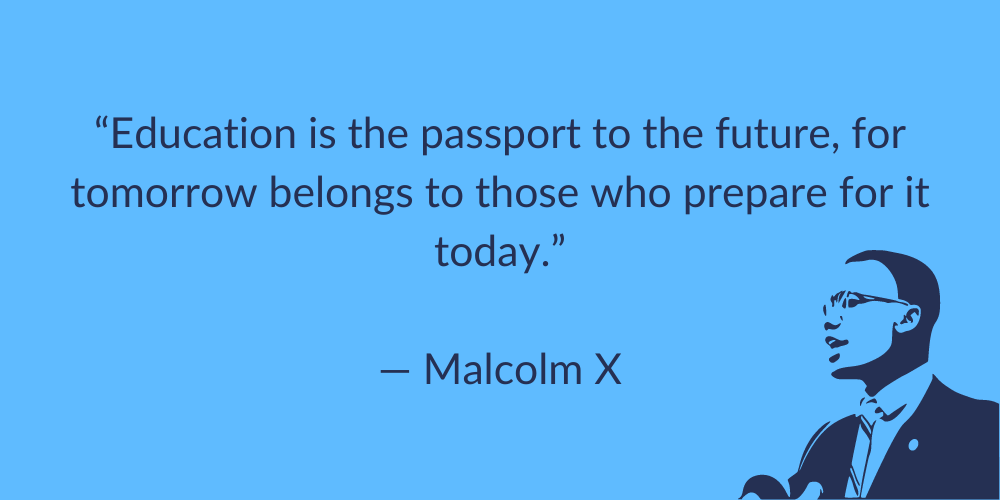
18. Technical skills and proficiency
Mastering job-specific technologies and tools, staying updated with the latest advancements in the field, applying technical knowledge to solve job-related challenges, and continuously seeking opportunities to enhance technical proficiency.
Required to maintain proficiency in relevant technical skills and tools is essential for enhancing job performance and productivity.
Particularly critical in specialized technical roles within sectors such as Information Technology, Engineering, Science, and any field that relies heavily on specific technical expertise.
Performance review phrases
After ensuring each statement under “Technical Skills and Proficiency” is distinct and focuses specifically on achievements and areas for improvement without repetition, the list is confirmed to be unique:
Achieves or outperforms expectations:
- Your advanced technical knowledge significantly boosts project outcomes and team efficiency.
- Implementing innovative technical solutions has elevated our team’s performance, showcasing your problem-solving creativity.
- Your adeptness at leveraging the latest technology has notably streamlined our processes, highlighting your proficiency.
- Sharing your technical expertise promotes continuous learning within the team, enhancing collective capabilities.
- Your commitment to staying updated with industry trends ensures our team remains competitive and innovative.
Needs improvement:
- Updating your technical knowledge is essential to align with current industry standards and improve your role effectiveness.
- Focusing on the practical implementation of your technical skills will enhance project outcomes.
- Increasing adaptability to new technologies is crucial for boosting work efficiency and team performance.
- Improving the clarity of your technical communications will facilitate better understanding and project success.
- Expanding your technical skill set to include emerging tools will broaden your expertise and increase your value to the team
19. Professionalism
Maintaining high standards of work quality and ethical behavior, adhering to workplace norms and policies, demonstrating respect and courtesy in all professional interactions, and positively representing the organization’s values and brand.
Required to exhibit professionalism through reliable work performance, ethical conduct, and appropriate workplace behavior.
Particularly critical in corporate environments, legal professions, and consulting roles, where professional demeanor and adherence to ethical standards are closely observed and valued.
Performance review phrases
After a thorough final review to guarantee that each statement under “Professionalism” uniquely addresses different aspects of professionalism, focusing on achievements and areas for improvement without repetition, here’s the concise list:
Achieves or outperforms expectations:
- Shows unwavering dedication to punctuality and thoroughness in task completion.
- Strives for excellence, continuously refining work to meet the highest standards.
- Engages deeply with the role, offering innovative ideas to contribute to the organization’s success.
- Maintains and applies comprehensive professional knowledge effectively.
- Seeks continuous self-improvement to elevate work performance and quality.
- Exhibits a positive attitude and resilience, even under challenging conditions.
- Commits to producing high-quality outcomes, focusing on precision and detail.
- Stays abreast of industry trends for ongoing professional growth and adaptation.
- Approaches problem-solving with diligence, aiming for thoughtful and effective solutions.
- Surpasses job expectations, inspiring others through passion and a high level of professionalism.
Needs improvement:
- Struggles to complete core job responsibilities consistently.
- Shows a lack of engagement, detrimentally affecting job performance.
- Demonstrates a need for punctuality and a more professional demeanor.
- Sometimes delivers work below the expected quality standards.
- Resists using feedback for improvement and lacks initiative.
- Falls short in keeping knowledge up-to-date with professional standards.
- Occasionally acts in ways that tarnish the organization’s professional image.
- Hesitates to tackle challenges directly, hindering team efficiency.
- Shows reluctance to take on extra duties, reducing support for the team.
- Exhibits reluctance to exert additional effort in crucial project stages.
Enhancing performance reviews with effective communication skills
The role of active listening in performance reviews: Active listening involves giving full attention, understanding the message, responding appropriately, and remembering what is said. Performance reviews help gather accurate information and show respect for the employee’s input.
The importance of non-verbal communication: Non-verbal cues, such as eye contact, body language, and facial expressions, are crucial in conveying sincerity and empathy during reviews.
Tips for ensuring clear communication and mutual understanding
- Use simple, clear language, avoiding jargon.
- Encourage questions to clarify doubts.
- Summarize key points to ensure mutual understanding.
Handling difficult conversations
- Strategies for Addressing Performance Issues and Sensitive Topics:
- Approach the conversation with empathy and professionalism.
- Be direct but respectful when discussing areas for improvement.
- Focus on facts and behaviors rather than personal attributes.
Phrases that help maintain professionalism and empathy
- “I’ve noticed some challenges in area X. Let’s talk about what support you need.”
- “Your contributions in Y have been invaluable, and I’d love to see more of that effort.”
How to conclude difficult conversations positively
- Summarize the key takeaways and agreed-upon action plans.
- Express confidence in the employee’s ability to improve and grow.
- Offer ongoing support and resources for development.
Tips on balancing positive and constructive feedback
- Start with positive achievements and strengths before discussing areas for improvement.
- Ensure critiques are specific and accompanied by suggestions for growth.
Discuss the importance of self-evaluation in the review process
Self-evaluation encourages employees to reflect on their performance, recognize their achievements, and identify areas for self-improvement. It promotes self-awareness and personal responsibility for professional development.
Conclusion
With this guide, you’re now ready to conduct performance reviews that highlight achievements and pave the way for future growth. The foundation of effective evaluations lies in fostering an environment of continuous betterment and open dialogue. This toolkit is your ally in transforming the review process into a constructive force that propels individual advancement and organizational success. Allow these strategies to motivate your team, framing feedback as an opportunity for growth and setting the stage for shared accomplishments.
Most popular
The Fundamentals of Employee Goal Setting
Employee goal setting is crucial for reaching broader business goals, but a lot of us struggle to know where to start. American...
Data-Driven Productivity with Hubstaff Insights: Webinar Recap
In our recent webinar, the product team provided a deep overview of the Hubstaff Insights add-on, a powerful productivity measurem...
The Critical Role of Employee Monitoring and Workplace Security
Why do we need employee monitoring and workplace security? Companies had to adapt fast when the world shifted to remote work...
15 Ways to Use AI in the Workforce
Whether through AI-powered project management, strategic planning, or simply automating simple admin work, we’ve seen a dramatic...

